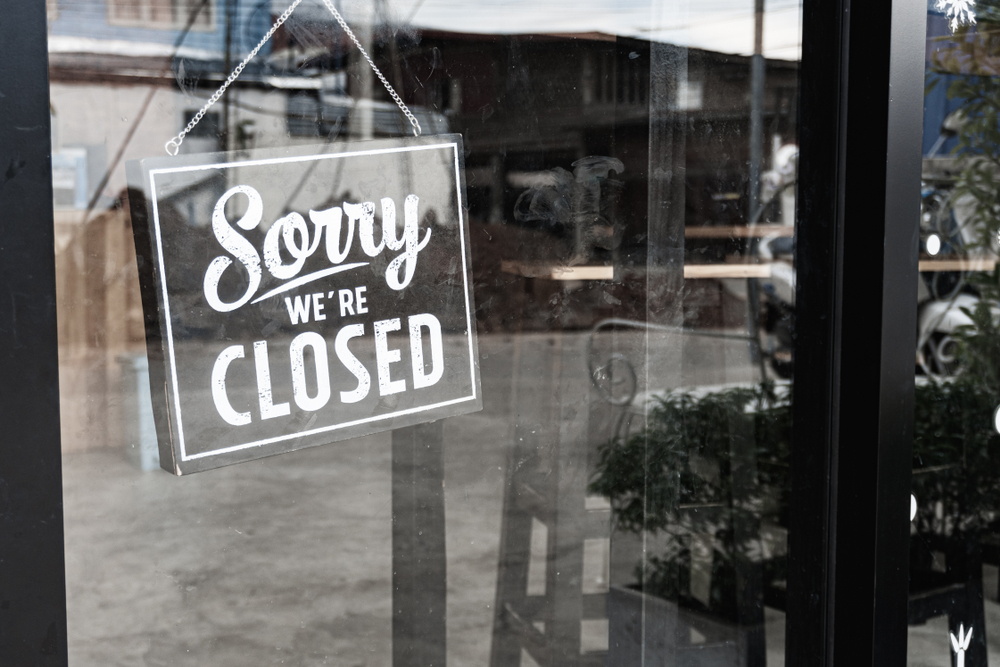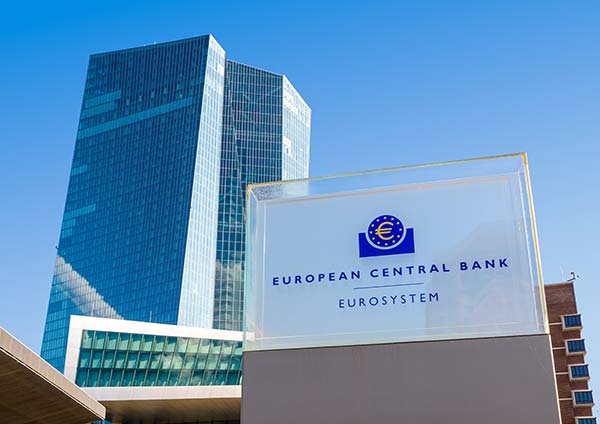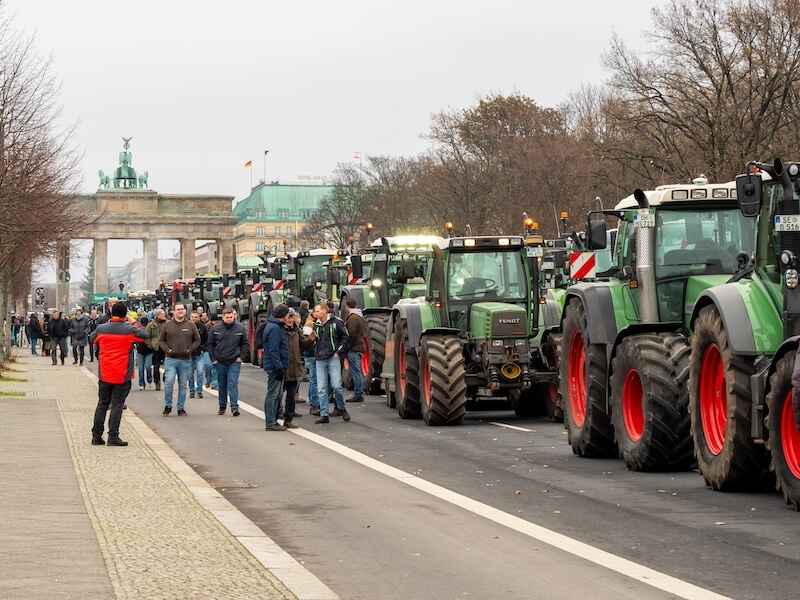The One Thing Americans Fear
Joel Salatin|May 12, 2020

Sometimes you come across a phrase that is profound enough to stop you in your tracks.
Such was the case last week when my fellow authentic food conspirator and friend Mark Lilly (of Farm to Family fame) came out to the farm to pick up some pastured meats for his food subscribers.
We hadn’t seen each other for a couple of months, so our conversation naturally went to the coronavirus.
In Mark’s military career, he was a disaster preparedness technician. To say that this pandemic is right up his alley would be an understatement.
Attracting Attention
A decade ago he started his Farm to Family distribution business with an eco-painted school bus and about 30 farmers willing to trust him.
Sporting cucumber vines, sunflowers, slogans and cows, the wildly painted school bus attracted national media attention right away.
With a head-jerking mural cruising down the highway, Mark’s mobile general store serviced office buildings in Richmond, Virginia, with a comprehensive array of local food.
Just like I cut my teeth on beyond organic production and marketing, Mark cut his teeth on local food distributed to the urban office crowd.
He’s been chipping away at success for a decade… and like all businesses in this authentic food space, he has suddenly seen his customers quadruple.
Like me, he doesn’t believe much of what the government says and is a student of cultural evolution.
What’s the Plan?
As we compared notes about how our businesses generally and our customers specifically were responding to the pandemic, he said the phrase that stopped me in my tracks…
Human history has been all about being proactive; today, we’re seeing the results of a culture that’s chosen to be reactive.
He pointed out that until very recently, humankind planned for things.
Indeed, our family no longer feels at home in modern American culture.
Our whole existence is wrapped up in planning for things. We make hay in the summer to be ready for winter. We plant a garden so we have food to eat. We can hundreds of quarts of vegetables that we eat in the winter.
We installed a state-of-the-art solarium on the south side of our 1790-built home so we can start vegetables early and have fresh lettuce all winter.
Late in the winter, we cut truckloads of firewood so both my mother’s house and our house can be heated in the winter from our outdoor wood-fired water stove.
We carefully budget our cash flow because our income rises and falls throughout the year depending on what is in season and our customers’ interests.
In late summer and early fall, we chip mountains of tree branches and crooked or diseased trees to get a stockpile of carbon for bedding under the cows, pigs, and chickens in the winter when they move into close quarters.
All it takes is one year running out of hay, one spring running out of firewood, or one meal running out of applesauce to learn the planning lesson.
Expect the Unexpected
Planning is all about being proactive in the face of impending calamity and downtimes.
Being proactive means you actively prepare for the unexpected. You sacrifice today so you’ll have some wiggle room tomorrow.
You build in a cushion for your money, your food, your energy.
Indeed, you build in some cushion for your relationships… That’s why you bring your wife some flowers occasionally.
Last week I was up in the mountain checking on one of our gravity-fed water lines, and the dogwoods were spectacular. Another shrub I was unfamiliar with had brilliant pink flowers.
I took a couple of minutes, cut off some twigs of each and brought them home to my 40-year bride – that’s emotional equity for when we have a disagreement.
That’s planning. It’s being proactive and buying shock absorbers.
No Clue
Contrast that with where our society finds itself today: a reactive state.
The average city has only three days of food in it. The average household perhaps even less.
We don’t know how to cook, we don’t know how to can and we certainly don’t know how to garden.
According to news reports, the handful of women who operate home-schooling podcasts have suddenly seen their memberships skyrocket from moms who don’t have a clue how to be a mom to their kids all day.
We flick switches for heat and light. If we want to go somewhere, we don’t have to saddle up a horse we’ve kept and fed… We just jump in a vehicle and tank up on gas and go.
In Little House on the Prairie days, towns entertained themselves with mock political debates, spelling bees, literature recitations and amateur drama. Today the most planning we do is figuring out which offering from Netflix to choose.
It’s thoughtless, instantaneous and convenient.
You don’t have to memorize anything. You don’t even have to read anything; just point and click.
So what happens when people don’t have skills, don’t have savings, don’t build a pantry or larder, and don’t invest in their health because pill-popping is all you need?
The society is reactive.
When a bobble comes along, suddenly everyone freaks out, curls up in a fetal position and huddles panic-stricken waiting for government orders and checks.
The deep divide between the protestors and those sequestering is largely a divide between proactive and reactive.
An Inconvenient Fear
My friend Mark said that the one thing Americans fear is inconvenience.
We don’t fear slavery. We don’t fear tyranny.
Staring down inconvenience takes planning and preparation… That means putting more attention on tomorrow than today. It means assuming something will be different next year. It means understanding that ease and luxury are aberrations.
Certainly someone could quibble with the words proactive and reactive. Folks who parse language could undoubtedly find some holes in this lexicon.
But I think Mark has it pegged fairly close. Now that non-mask-wearers are labeled murderers, the incendiary reactive persona is obvious and frightening… far more frightening than COVID-19.
I don’t know about you, but I want to be counted as proactive. If I die, I die, but I’m going to build my immunity, lay some food by, lay some money by, invest in some great, talented folks as friends, master some skills and say, “Bring it on.”
Editor’s Note: Has much of society been brought to its knees by a fear of inconvenience? What do we need to be better prepared for crisis? Send us your thoughts here.

Joel Salatin
Joel Salatin calls himself a Christian libertarian environmentalist capitalist lunatic farmer. Others who like him call him the most famous farmer in the world, the high priest of the pasture, and the most eclectic thinker from Virginia since Thomas Jefferson. Those who don’t like him call him a bioterrorist, Typhoid Mary, a charlatan, and a starvation advocate. With a room full of debate trophies from high school and college days, 12 published books, and a thriving multigenerational family farm, he draws on a lifetime of food, farming and fantasy to entertain and inspire audiences around the world.





